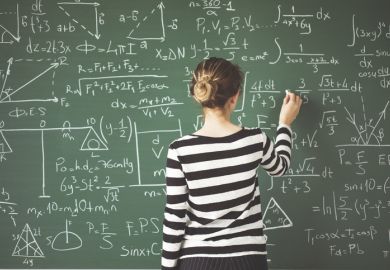For many, mathematics is the paradigm of perfect and infallible knowledge.
For over 2,000 years Euclid's Elements was taken as the paradigm of absolute truth. In the 20th century philosophers became aware of its flaws and the leading schools in the philosophy of mathematics tried to justify the certainty of mathematics in different ways. This was through the logical foundations of mathematics in Frege and Russell's logicism, as a meaningless formal system according to Hilbert's formalism, and as based on infallible intuition in Brouwer and Heyting's intuitionism. Each of these schools tried to promote a big idea about what mathematics really is. However it is now accepted that these attempts failed.
In the past quarter-century a new movement has emerged in the philosophy of mathematics, called the "maverick" tradition by Philip Kitcher. This movement is naturalistic, concerned to describe the nature of mathematics and the practices of mathematicians, both in the present and in the past. It has a fallibilist epistemology, rejecting the claims for the absolute timeless certainty of mathematical knowledge.
It also rejects the Platonistic view that the objects of mathematics exist in some perfect, timeless and superhuman realm. Members of this movement include Kitcher, Philip J. Davis, Reuben Hersh, Imre Lakatos, Tom Tymoczko, and others. The present book is Hersh's magnum opus. In it he takes a calculated risk. Instead of writing an academic book, he aims to make his arguments accessible to the well-informed public. Any taxing mathematical examples are collected in an appendix at the end of the book. The risk is that the philosophical community will take the book less seriously. But it is a serious book that succeeds in putting a strong case for a socio-historical view of mathematics, which Hersh calls "humanistic".
After some illuminating preliminaries the book proper starts with a quick introduction to traditional philosophies of mathematics, as well to Hersh's own humanistic philosophy. This is followed by an inquiry into the nature of the philosophy of mathematics itself, and essential and desirable characteristics of the field are discussed.
The central part of the book is taken up with two accounts. The first is a discussion of key concepts of mathematics, such as its overall image, intuition, proof, infinity, change, and existence. The second is an historical overview of the philosophy of mathematics organised into themes and encompassing almost 50 philosophers from Pythagoras, Plato and Aristotle to Lakatos, Kitcher and other present-day thinkers.
This account humanises the history of the philosophy of mathematics to date, and provides the principal axis of the account. Finally Hersh's own humanistic philosophy of mathematics is evaluated in terms of the criteria he defined earlier.
One of the most important arguments in the book, hinted at by the title, concerns the reality of mathematical objects. Hersh argues that these objects are part of social-historic reality, but they have no sense or existence beyond their cultural meanings. He argues that there are two technical senses of the existence of objects in mathematics, constructive and indirect.
Constructive existence means that a mathematical object is made from known objects by a determinate and normally finite sequence of operations. Thus the "recipe" for constructing the object is given in mathematical language. Indirect existence means that within a mathematical system it is possible to derive a contradiction by deductive reasoning from the assumption that the object does not exist.
The difference between these two is what led to the conflict between Brouwer and Heyting's intuitionism and the rest of classical mathematics, for classical mathematicians accept both senses but intuitionists only the former. Hersh argues that both senses are important and meaningful, but what they really show is the fictional nature of mathematical objects. Thus he proposes a form of nominalism. Mathematical objects only exist in the system of mathematics. However, because of the power of the structures and system of mathematics as a tool for describing the world about us, which mathematical humanism shows to be its historical origin, mathematics has real consequences.
These consequences, like those of music, economics and the gap in a doctor's appointment schedule into which we are fitted, are really experienced by us, even if the objects themselves are not real in the sense that stones are.
This is a well-written, well-argued and fascinating book. It contains important arguments that clarify the boundaries of debates in the philosophy of mathematics. It proposes an important new position in the philosophy of mathematics. It offers both a challenge to philosophers of mathematics and an accessible account for the non-specialist.
Paul Ernest is reader in mathematics education, University of Exeter.
What is Mathematics, Really?
Author - Reuben Hersh
ISBN - 0 224 04417 6
Publisher - Cape
Price - £18.99
Pages - 343
Register to continue
Why register?
- Registration is free and only takes a moment
- Once registered, you can read 3 articles a month
- Sign up for our newsletter
Subscribe
Or subscribe for unlimited access to:
- Unlimited access to news, views, insights & reviews
- Digital editions
- Digital access to THE’s university and college rankings analysis
Already registered or a current subscriber?



